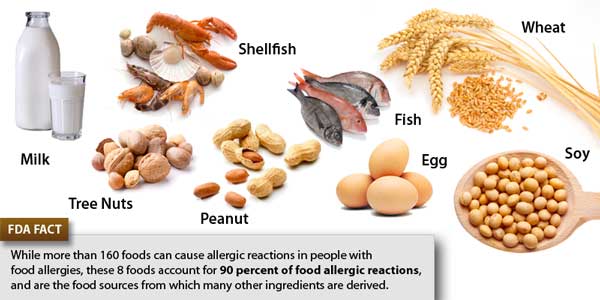Restaurant Allergen Control
Food allergies are on the rise, says the Food Allergy and Research Education Center. In fact, studies show a 50 percent increase in childhood allergies alone between 1997 and 2011. Eight main foods are responsible for most of these allergies.
Wheat, dairy, eggs, fish, shellfish, peanuts, tree nuts, and soy take the blame for an incredible 90 percent of all allergic reactions. These are also incredibly common in modern food dishes, and this makes them prevalent among modern commercial kitchens.
According to an article published by USA Today, the food service industry could be prone to lawsuits regarding allergens. A lawsuit filed by students at the University of Massachusetts could be the start of a new era.
The students, who suffer from Celiac Disease, sued the school for refusing to provide gluten-free alternatives to the mandatory meal plan. Students complained they were paying for food they could not even eat. The school has since paid monies to the students, revamped their kitchen to provide safety from cross-contamination, and created a gluten-free alternative menu for the students in question.
In 2016, Panera fell subject to a lawsuit when a grilled cheese sandwich became contaminated with peanut butter. It was served to a young girl with a severe peanut allergy whose mother told employees twice (in written form, nonetheless) about her daughter’s allergy. That story can be ready on Allergy Eats.
What Does it All Mean?
With food allergies on the rise, and lawsuits abounding over restaurant negligence regarding allergens, it becomes vital for modern eateries to practice better allergen control. This begins with in-house training that goes beyond knowing to wipe the board between meals or changing gloves often to prevent cross-contamination.
Kitchen staff may receive a basic crash course in food handling safety prior to their first shift, but wait staff often receive no training. The importance of this is in relaying the message.
If wait staff are unable to understand the importance of a food allergy warning, they may not always properly relay the information. If kitchen staff are not properly trained to handle these situations, it can be a complete nightmare for allergy sufferers.
Prep cooks, line cooks, and wait staff need to become more informed on just what food allergies are, what the potential side effects of negligence could be, and how to handle orders that come in with allergy warnings. A simple training course could potentially save restaurant owners millions of dollars in lawsuits and refunds.
Contact TRG for your menu and recipe development and restaurant training services.





